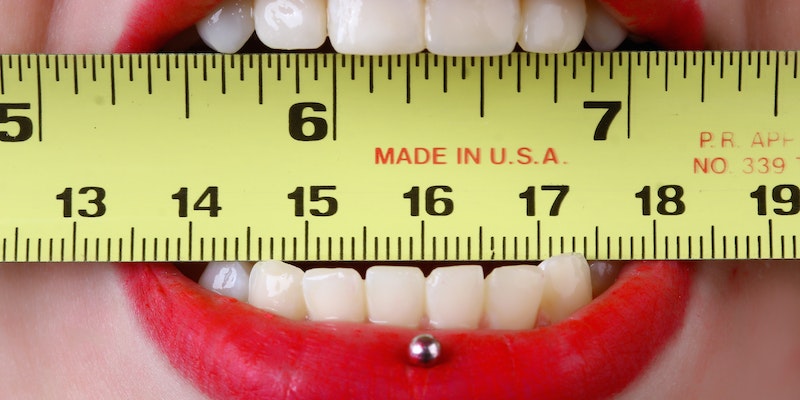Beware of These 4 Health Products When Shopping Online
Nov 23, 2023 By Madison Evans
In today's bustling marketplace, the convenience of buying healthcare products online can be alluring. This convenience carries disadvantages, especially when purchasing health products. These four consequences should make you reconsider adding them to your online shopping cart.
Prescription Medications

Navigating the online marketplace for prescription medications can feel like walking through a minefield. There's an unsettling ease with which one can stumble upon sites offering these healthcare products without a valid prescription. This ease of access is a glaring red flag and poses significant health and legal risks.
The DEA has warned sternly about the illegalities and potential dangers of acquiring controlled substances without proper authorization. One alarming example is a scenario involving the FDA discovering that online purchase of the flu medication Tamiflu was not a genuine article but a harmful mixture of talc and acetaminophen. Such instances underscore the potential health hazards lurking in the seemingly convenient online marketplaces for health products.
Legal Consequences
The law is unambiguous when it comes to purchasing prescription medications online. Not only can buying controlled substances like Xanax or Ambien without a prescription land you in legal hot water, but it can also expose you to severe health risks due to the uncertainty of the product's authenticity and safety. The DEA has clarified that those who bypass legal procedures to buy such health products could face serious repercussions.
Safeguarding Your Health
While the potential risks are significant, purchasing prescription medication online isn't entirely off-limits. There are licensed US-based online pharmacies that are not only legitimate but can also offer cost-effective options for acquiring prescription medications. Dr. Dlugopolski-Gach recommends verifying the legitimacy of such sites through the National Association of Boards of Pharmacy and ensuring they have licensed pharmacists, a reachable contact number, and a valid prescription.
Common Sense and Vigilance
Common sense remains your greatest ally in the quest for convenience and affordability. If a deal appears overly advantageous, scrutinizing the authenticity of the health products becomes paramount. The risks associated with counterfeit medications are real, and a discerning approach is necessary to safeguard your health.
Weight Loss Supplements
The online world is saturated with weight loss supplements, each one promising rapid and impressive results. The appeal is undeniable, but so are the risks. Many of these health products for you are different from what they seem. The FDA's findings reveal a concerning picture of supplements, even herbal ones, tainted with undisclosed and potentially harmful ingredients. The lack of FDA approval for many of these products raises concerns about their safety and efficacy.
Hidden Dangers
The hidden perils of weight loss supplements are not to be underestimated. Dr. Dlugopolski-Gach cautions that many of these pills are mere stimulants laden with high levels of caffeine and can pose significant risks, particularly for individuals with cardiac conditions. Building long-term healthy habits is a far safer and more sustainable weight-loss path.
Informed Decisions and Medical Advice
Despite the proliferation of dubious weight loss supplements online, an informed approach can mitigate risks. BeA discussion with a healthcare professional is essential before considering any supplement, especially those marketed as natural. They can provide valuable insights and advice on the safety and appropriateness of such healthcare products for your needs.
Scrutiny and Caution
The allure of quick fixes and miraculous results can be tempting, but scrutiny and caution are your best defenses against the potential risks associated with online weight loss supplements. Verifying product claims, seeking professional advice, and adopting a discerning approach is vital to ensuring your health products are safe and beneficial.
Online Breast Milk Purchases
Breast milk, often termed "liquid gold," is undeniably appealing for various reasons, but acquiring it online comes with substantial risks. The unregulated nature of online breast milk sales poses significant health hazards, including contamination with viruses, bacteria, alcohol, prescription medication, and even illicit substances. Dr. Dlugopolski-Gach has highlighted these potential risks and emphasized the importance of considering safer alternatives.
Contamination Concerns
Online breast milk can be contaminated with harmful agents such as hepatitis or HIV, bacteria from improper storage or shipping, and even adulterated with cow's milk. A study published in Pediatrics found that 10% of tested samples were laced with cow's milk, presenting an allergenic risk. These revelations call for caution when considering online breast milk as one of the health products for you or your family.
Regulatory Gaps and Seller Motivations
The absence of regulatory oversight in online breast milk sales opens the door to questionable practices. Some sellers might be motivated more by profit than altruism, leading to practices like adulteration to increase volume. While organizations like Eats on Feets and Only the Breast offer guidelines for safety, adherence remains inconsistent, raising concerns about the reliability of such health products.
Safer Alternatives
For various reasons, safer alternatives exist for those unable to produce breast milk. Formula milk offers a nutritious and safe option. For those wishing to donate, nonprofit milk banks are available that conduct thorough screening, testing, and pasteurization to ensure safety. Dr. Dlugopolski-Gach encourages exploring these alternatives before resorting to potentially risky online sources.
Informed Choices
Making informed choices is crucial when it comes to acquiring breast milk. Understanding the risks, exploring safer alternatives, and putting the health of your child first should guide the decisions made in this sensitive area of healthcare products.
Hormone Products

As menopause approaches, the search for balance can lead some women towards hormone replacement medications, creams, or herbs available online. The quest for a quick fix can be tempting, but Dr. Diana Bitner warns of some of these health products' potential side effects and inefficacies. Overusing certain hormone products can lead to severe side effects such as abnormal hair growth, voice deepening, and mood issues.
Variability and Efficacy
The online market for hormone products showcases a vast array of options, with varying amounts of active ingredients and questionable efficacy. For instance, while soy is marketed as a natural remedy for menopausal symptoms, only about 30% of women may experience its purported benefits, rendering it an impractical option for many.
Medical Guidance and Natural Labels
Medical guidance is indispensable when considering hormone treatments. Even products labeled as "natural" require a doctor's oversight to ensure appropriate use and to avoid potential health complications. Dr. Bitner emphasizes the importance of consulting healthcare professionals to receive the right amounts of hormones.
A Discerning Approach
Navigating the plethora of hormone health care products available online requires a discerning approach. Seeking medical advice, scrutinizing product labels, and being aware of the limitations and risks of these health care products are essential steps in safeguarding your health. By making informed and cautious decisions, you can ensure that the health products for you are not only practical but also safe.
The Risks and Safeguards
While the digital market offers many healthcare products, it is essential to exercise caution and diligence. The abovementioned products illustrate the potential dangers and the importance of informed decision-making when buying health products online.
- Prescription Medications: Ensure the online pharmacy is licensed, has a valid contact number, employs licensed pharmacists, and requires a prescription.
- Weight Loss Supplements: Consult a healthcare professional before trying a new supplement, and be wary of products making grandiose promises without FDA approval.
- Breast Milk: Avoid buying breast milk online due to contamination risks. Consider safer alternatives like formula or nonprofit milk banks that adhere to stringent safety standards.
- Hormone Products: Seek medical advice before starting any hormone therapy. Avoid self-prescribing and purchasing unverified products online.

How To Begin Your Race Walking Journey

Yoga Positions That Can Help Ease Gas Discomfort And Bloating

Detecting Parkinson's Disease: Hearing Loss and Epilepsy

Find out if drinking pineapple juice before your wisdom tooth surgery helps with the pain or if it is just a myth made by old people.

Treatment Strategies for Sunburned Lips

Meditative Healing: 11 Techniques to Alleviate Depression

Overcoming Fatigue: Top Ten Natural Strategies to Boost Your Energy


